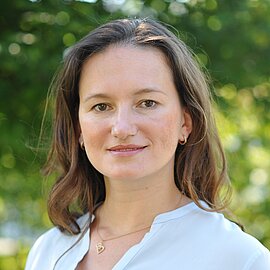Digital innovations are seen as one of the major drivers behind growth of food economy in the future. In view of the upcoming IAMO Forum 2020 that will be dedicated to digital transformation of the agri-food value chains in Eurasia, IAMO has initiated a series of interviews with the keynote speakers of the Forum.
Matija Zulj is CEO and Founder at Agrivi, a global ag-tech company that provides one of the leading global farm management software platforms. In his interview to IAMO, he shares his experience of adopting new technologies along the agri-food value chain.
IAMO: Mr. Zulj, what is the profile of your typical client? Would you agree with the statement that digital technologies bring benefits mainly to large farms while smaller ones experience much less positive payoffs?
Matija Zulj: Our clients are professional farmers of all sizes, food companies who contract farmers, agronomic advisors who bring data-driven advices to farmers and other stakeholders of the agricultural value chain. Our experiences of working together with farmers show that all farmers, no matter of what size, can experience strong positive effects of digital technologies. Large farms generate larger data sets that enable very insightful analytics and improvement discovery, but smallholder farms often use digital technologies via participating in cooperatives that often include hundreds or thousands of farmers who share data with each other.
IAMO: Do you observe any resistance to implementation of new technologies by farmers and other stakeholders of the agri-food value chain? If yes, why does it exist?
Matija Zulj: Definitely, there is some resistance and it is related to the newness of technology we are bringing. We are not bringing better or cheaper fertilizer; we are bringing products that farmers have never used before. Digital technologies in agriculture are a new product category, a true blue ocean. When adopting new technologies, farmers need to change their behavior and routines they have been using for years. This takes time and it is not a simple or trivial process. All companies who bring digital technologies to farmers and the value chain need to install strong change management procedures to support customers properly and ensure successful technology adoption.
IAMO: Interaction among food chain actors has become more digitized over recent years. Which stages of the food chain do you think are the most and least advanced in this process?
Matija Zulj: Both downstream and upstream actors of the agri-food value chain are strongly included in the process of digital transformation. Upstream stakeholders, like seed and chemical companies, demonstrate the highest activity among all stakeholders today. However, we observe also rising levels of engagement on the part of food processors and retailers.
IAMO: What do you think are the challenges of digital transformation of the food chain globally? In your opinion, what are three most important conditions for successful digital transformation of the agri-food sector in the future?
Matija Zulj: Food value chains, especially farmers, still prefer a lot of offline activities and they often cannot be reached by agritech companies easily via online channels. Access to farm gate is one of the largest challenges for digital technology providers along with technology adoption by farmers. Three most important conditions for successful digital transformation would include farmer and value chain education about the benefits of technology, regulatory requirements toward sustainable agricultural practices, as well as consumer education about food transparency as consumers are the key driver of all changes.
IAMO: Thank you for your time.
The IAMO Forum 2020 “Digital transformation – towards sustainable food value chains in Eurasia” will be held from 24 to 26 June 2020 in Halle (Saale), Germany. For more details, please follow the link to the conference website.



